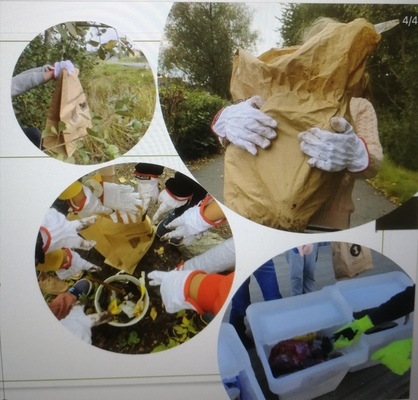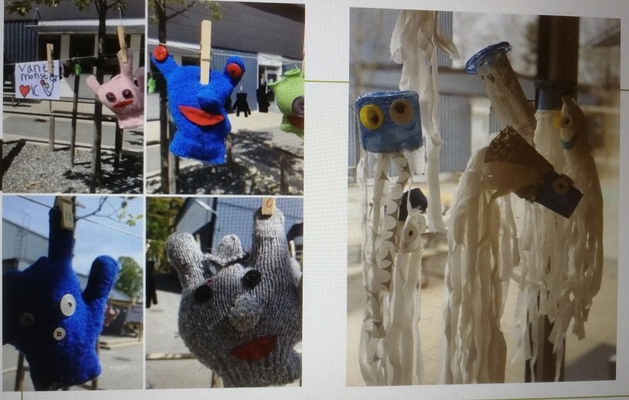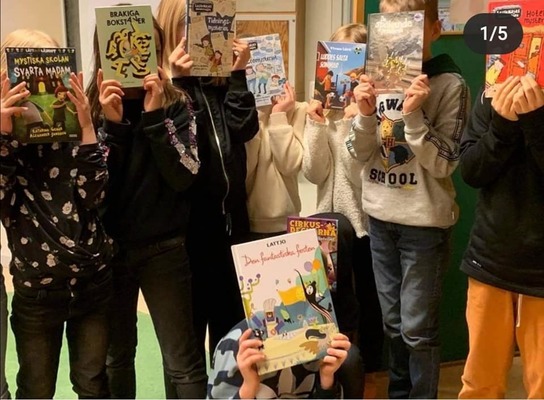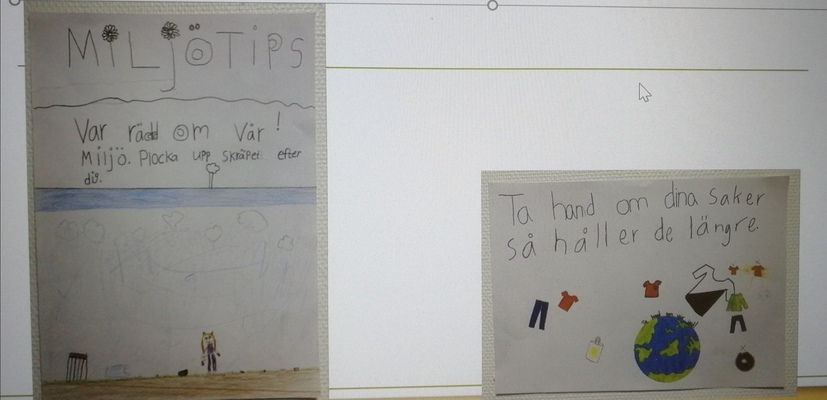Theme day: picking rubbish

Aims:
-
To highlight that trash can harm animals and destroy our nature. This is also followed up in a lesson in the classroom.
-
To teach the pupils about the recycling process.
-
The students get to do something meaningful.
We also run a rubbish sorting competition!
Creating art from rubbish

-
The students got the mission to create "animals that live in the sea" by using waste material.
-
We got all the waste material from a creative resource center in our town, that collect (toxic free) waste material from companies and hand it tout to schools and kindergartens.
-
Many odd gloves are left at school and instead of throwing them away the pupils made "glove creatures".
Book exchange day

The students at the leisure center got to bring a book from home. Through a lottery everyone got a new book to bring back home.
This is recycling for real, and we talked about recycling, talked about not always having to buy brand new things and the possibility to exchange stuff with each other.
Year 2 have made posters with tips for sustainable living.

Biogas instead of compost – why we don't have a compost at Furuhäll
In Sweden we are taught that it is better to leave food waste to become biogas than to put it in the compost. That is why we at Furuhällsskolan did not make a compost even if it was part of the waste management project.
Making biogas and biofertilizer from food waste is even better for the environment than composting it at home. Studies show that when they make biogas in a large scale it is better from an environmental point of view than that households have their own composts.
The main reasons for this are:
• Biogas reduces the need of fossil fuels
• Biofertilizer reduces the need of fertilizer
• Own compost creates the greenhouse gases methane gas and nitrous oxide
• In your own compost, energy is lost as heat
• It secures a supply of locally produced vehicle fuel and biofertilizer.